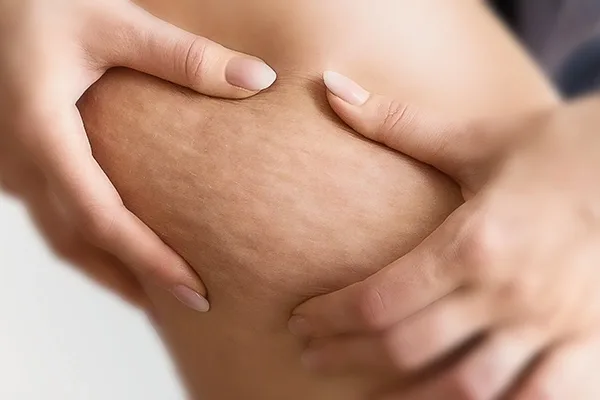What Are the Real IV Therapy Benefits for Health and Wellness?
IV therapy benefits include rapid hydration, faster recovery, and direct nutrient delivery with 100% absorption. It’s used in both medical and wellness settings:
- ✅ Medical Uses: Emergency care, post-surgery recovery, chronic disease management, and chemotherapy.
- ✅ Wellness Uses: Hydration, immune support, athletic recovery, anti-aging, and hangover relief.
- ❗ Note: Evidence for anti-aging and weight loss benefits is limited.
While IV therapy benefits can be significant in clinical settings, long-term wellness still depends on a healthy lifestyle.
Intravenous (IV) therapy is a medical technique that delivers fluids, medications, and nutrients directly into the bloodstream via a vein. This method ensures rapid absorption and immediate physiological effects, making it a critical component of modern medicine. IV therapy benefits include improved hydration, faster recovery, enhanced nutrient absorption, and targeted medical treatments. It serves various purposes, from life-saving interventions in emergency care to wellness treatments in specialized clinics.
In recent years, IV therapy in Dubai has expanded beyond hospitals and emergency rooms, gaining popularity among individuals seeking improved hydration, immune support, anti-aging benefits, recovery from strenuous activities, and even weight management. But who truly benefits from IV therapy, and what does science say about its efficacy? This article explores the medical and wellness applications of IV therapy, its advantages, risks, and the populations that stand to gain the most from this treatment.
Understanding IV Therapy: How It Works
IV therapy involves the direct infusion of fluids into the veins, bypassing the digestive system and ensuring 100% bioavailability of the administered substances. It is commonly used in hospitals or clinics to deliver medications, correct fluid imbalances, and provide essential nutrients when oral administration is not possible.
The composition of IV therapy solutions varies based on the patient’s needs. Based on our full IV therapy guide, these solutions may include:
- Crystalloids (e.g., saline and lactated Ringer’s solution) for hydration and electrolyte balance.
- Colloids (e.g., albumin and plasma expanders) to maintain blood volume in cases of severe blood loss or hypovolemia.
- Medications (e.g., antibiotics, pain relievers, chemotherapy drugs) for targeted treatment.
- Nutrients (e.g., vitamins, minerals, amino acids) to support metabolic processes.

IV Therapy Benefits in Medical Applications
Emergency and Critical Care
Severe Dehydration
Dehydration can result from conditions such as gastroenteritis, excessive sweating, or prolonged fasting. IV fluid therapy restores hydration rapidly, preventing complications such as kidney damage, electrolyte imbalances, and cardiovascular instability.
Trauma and Blood Loss
In trauma patients experiencing blood loss, IV fluids help restore blood volume and stabilize blood pressure until definitive interventions, such as blood transfusions or surgery, are possible.
Sepsis and Severe Infections
Patients with sepsis—a life-threatening response to infection—require immediate IV administration of antibiotics and fluids to prevent organ failure. IV therapy ensures rapid drug delivery and optimal therapeutic effects.
Post-Surgical Recovery
After surgery, patients often require IV fluids to replenish lost fluids and maintain electrolyte balance. IV pain medications, antibiotics, and nutrition support accelerate recovery and prevent complications.
Cancer Treatment (Chemotherapy)
Chemotherapy drugs are commonly administered via IV to ensure precise dosing and rapid distribution. IV therapy in cancer minimizes gastrointestinal side effects while enhancing drug efficacy.
Chronic Conditions Requiring IV Therapy
Some chronic conditions necessitate ongoing IV therapy, including:
- Chronic Kidney Disease (CKD): Patients undergoing dialysis often require IV iron and erythropoietin to manage anemia.
- Malabsorption Syndromes: Patients with Crohn’s disease, celiac disease, or short bowel syndrome may need IV nutrition (total parenteral nutrition or TPN).
- Autoimmune Diseases: Certain treatments, such as monoclonal antibodies for multiple sclerosis or rheumatoid arthritis, are administered via IV infusion.

All these benefits explain why IV therapy is gaining more popularity over time, as more and more people seem to consider undergoing this treatment.
IV Therapy in Wellness and Lifestyle Medicine
Beyond medical applications, IV therapy is now widely used in wellness clinics and aesthetic medicine. While some claims about IV therapy’s benefits lack robust scientific backing, certain groups may benefit from these treatments.
Just treat yourself to the luxury of our VIP IV treatment in Dubai at elegant hoopoe and notice the difference yourself.
Athletes and Fitness Enthusiasts
Post-Workout Recovery
Athletes undergoing intense training often experience dehydration, muscle soreness, and oxidative stress. IV therapy for athletes replenishes lost fluids and electrolytes faster than oral rehydration, reducing fatigue and aiding muscle recovery. However, for most individuals, oral hydration is sufficient.
Performance Enhancement
Some IV therapy formulations containing amino acids, vitamins, and antioxidants claim to enhance endurance and muscle repair. While individual nutrients play a role in athletic performance, scientific evidence does not strongly support IV administration over oral supplementation.
Individuals with Nutrient Deficiencies
Certain individuals have difficulty absorbing nutrients due to medical conditions such as:
- Malabsorption Syndromes: Conditions like celiac disease and Crohn’s disease impair nutrient absorption, making IV supplementation necessary.
- Gastric Bypass Surgery Patients: Post-bariatric surgery, some patients develop deficiencies in iron, B12, and other nutrients that require IV replacement.
Immune System Support
IV therapy can be an immune booster, particularly with high-dose vitamin C and zinc infusions. While some evidence suggests that IV vitamin C may shorten the duration of colds and enhance immune response, data on long-term benefits remain inconclusive. The best immune support still comes from a balanced diet and a healthy lifestyle.
Anti-Aging and Detoxification
NAD+ IV Therapy
Nicotinamide adenine dinucleotide (NAD+) infusions can supposedly have anti-aging benefits, including improved mitochondrial function and enhanced cognitive performance. While preliminary research indicates potential benefits, definitive human trials are lacking.
Glutathione Infusions
Glutathione, a powerful antioxidant, is used in IV therapy for skin brightening and detoxification. While it plays a role in cellular defense, its efficacy for aesthetic purposes remains debated.
Here at elegant hoopoe, we have a special offer for you. Our glutathione IV therapy for men is now available in Dubai for both men and women, a great fit for anyone who wants to be at their best all the time.
Hangover Relief and Jet Lag Recovery
IV hydration therapy has become a popular remedy for hangovers, jet lag, and travel fatigue. These drips often contain electrolytes, vitamins, and anti-nausea medications to alleviate dehydration and headaches. While they provide immediate hydration, lifestyle modifications remain the best long-term strategy for preventing these conditions.
IV Therapy for Weight Management
IV therapy is sometimes marketed as a weight loss aid, particularly in formulations containing lipotropic compounds (e.g., L-carnitine, methionine, inositol, and choline), which are believed to help metabolize fat. However, scientific evidence supporting IV therapy for weight loss is limited.
What Science Says:
- Boosting Metabolism: B-complex vitamins and amino acids support metabolic processes, but their effectiveness via IV versus oral intake is unclear.
- Enhancing Fat Breakdown: Lipotropic compounds aid in fat metabolism, but their impact via IV therapy is not valid.
- Increasing Energy Levels: While IV therapy may help combat fatigue, sustainable weight loss still depends on proper nutrition and exercise.
For long-term weight management, individuals should prioritize a healthy diet, regular physical activity, and medical guidance over the best IV therapy in Dubai.
Conclusion
IV therapy is a vital tool in modern medicine, providing life-saving interventions for critically ill patients while offering potential wellness benefits for certain individuals. It is indispensable in emergency medicine, post-surgical recovery, chronic disease management, and hydration therapy.
Although IV therapy is sometimes marketed as a wellness solution for anti-aging, immune support, and weight loss, the scientific evidence supporting these claims is mixed. Despite all these advantages mentioned in the article, IV therapy is not for everyone. For sustainable health benefits, individuals should focus on balanced nutrition, exercise, and lifestyle changes.
References
- Verywell Health-Is NAD+ a Miracle Anti-Aging Treatment, or Is It Just Hype?
- Glamour-Is an Immune System Booster Infusion Worth the Hype? I Tried It to Find Out
- Harvard Health Publishing-Immune boosts or busts? From IV drips and detoxes to superfoods
- National Library of Medicine-Intravenous (IV) iron for severe iron deficiency





